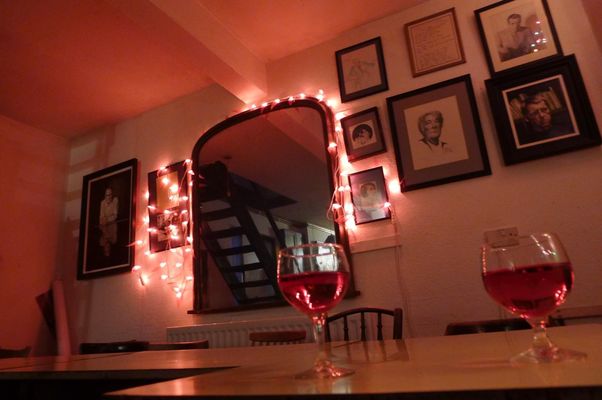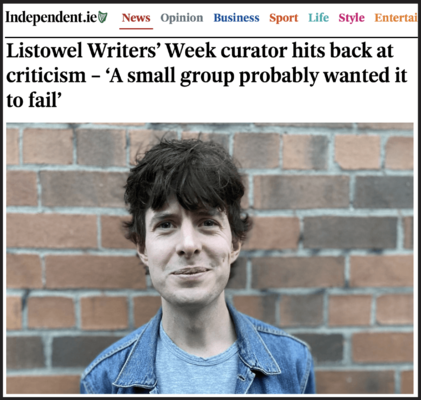LAST week I arrived back in Belfast knowing that I had no plans to leave again. I arrived in North Kerry at the start of January after getting what I thought was a dream job (albeit a short fixed-term one). I thought I’d have been able to relax, but immediately crashed: some of it was physical and I suspect it might’ve been Covid, but more than that it was a real mental crash.
The job I’d moved to in Kerry was putting together the programme for the oldest book festival in Ireland, but it came after a controversial restructure that popped up in the national press on a regular basis. I knew that I was likely to come in for some criticism in the town but hadn’t expected the form that a great deal of the criticism would take. On a wet Tuesday night in January I was introduced to a group of regulars in a pub a little bit outside the town: "this is Stephen Connolly, he’s here from Belfast and he’s the new curator." There was a silence before one of the old guys said, loudly and to nobody in particular, "could they not have got anyone Irish to do it?"
I made some great friends in the town, but there was a lot of this kind of vitriol, veiled or unveiled, about being from the North. One journalist said that he would put the restructure "in terms that you can understand" and that it was "the same as gerrymandering and what happened in the North in 1969." I couldn’t believe what I was hearing.
For as long as I’ve had some form of coherent thoughts on my identity, I’ve felt every bit as Irish as someone whose granny lived on An Blascaod Mór: no more or less. What these unguarded jibes (and there were plenty more jibes about where I was from) have brought into focus is that I was returning to Belfast with a different understanding of the city that I left just six months earlier.
In my last column, I said that I’d be writing about being in Stuttgart with the poets Padraig Regan and Manuela Moser visiting Jessica Bunschuh’s students. Jessica has written about Padraig’s poem ‘Rehydrating Mushrooms’, a poem that comes in a long line of Irish mushroom poems that deal with history, legacy and overlapping elements of the past.
The network of these mushroom poems is vast, but Paul Muldoon’s ‘Gathering Mushrooms’ is the most acute antecedent for Regan’s poem: with its blanket of Irish rain and nightmarish qualities. In Regan’s poem, the poem’s speaker says "I don’t / believe in ghosts, but it has been three months since a man was shot in a street just next to where I live & now it seems the ghosts are everywhere" and it ends firmly placed in the (then) present: "in undisclosed locations/ bodies seep into the water table. It is the first Monday of June 2016."
The past in the dried mushrooms seeping out into the present seems as good a metaphor for what people of our generation think about as anything I’ve read.
Later on that early wet night in the bar outside Listowel one of the regulars who’d laughed at the line about getting someone Irish spoke quietly to me, saying "and what it’s like up there now? Is it still dangerous?"
Without so much as a hint of a smile to betray what I really thought, I said "aye, very dangerous: you have to be very careful. I don’t know if you could hack it."
Padraig Regan, ‘Rehydrating Mushrooms’
It was a lovely (and very surprising) thing to wake up to the news that my book is among the #Lammys winners! What a thing even to be listed alongside the other poets in this category https://t.co/8GSXTae2MM
— Padraig Regan (@Padraig_Regan) June 10, 2023








